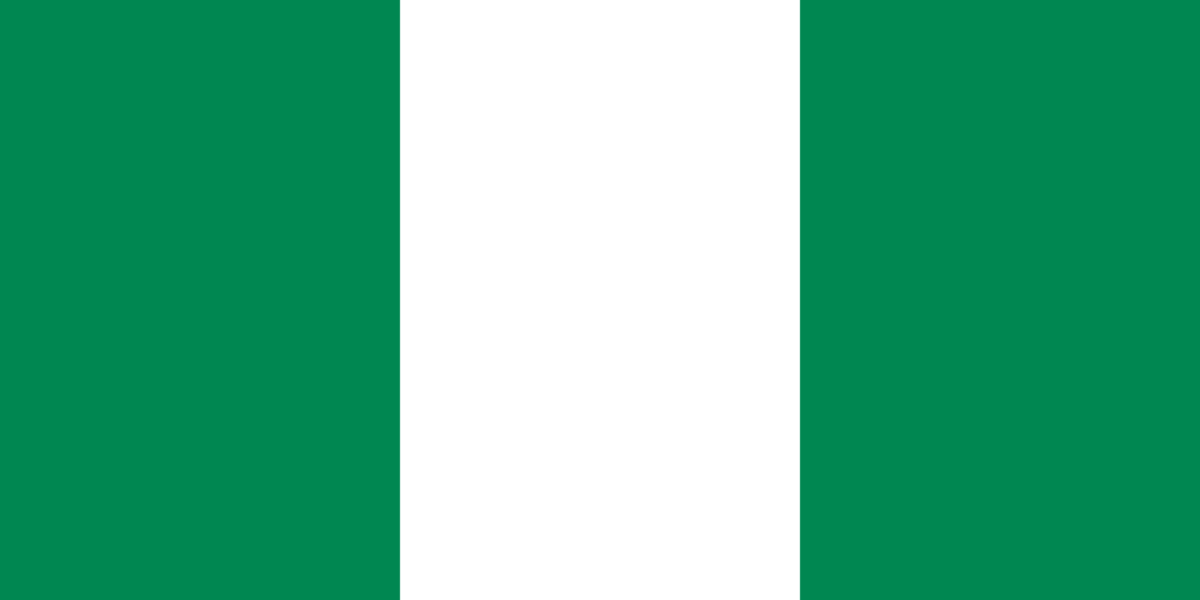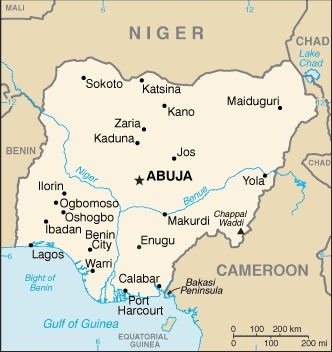Overview
The west African Federal Republic of Nigeria is the most populous nation in that continent: with currently more than 230 million people. With a southern coastline in the Gulf of Guinea, Nigeria borders Cameroon in the east, Chad in the northeast, Niger to the north and Benin to the west.
The country’s present geographical shape was established early in the 20th Century under British rule. Nigeria gained its independence in 1960.
Nigeria comprises more than 250 ethnic groups, with many different local languages. The three main ethnic groups are the Hausa in the north, the Yoruba in the west and the Igbo in the south. The country endured a civil war from 1967 to 1970, when a secessionist area in the southeast, Biafra, declared its independence. A protracted blockade led to mass starvation of Biafrans.
Since that time the country has experienced periods of democratically elected governments and military dictatorships, with more stable democracy established by the turn of the century.
What it means to be a Christian in Nigeria
Among all the countries where Christians face serious persecution, Nigeria presents an unusual scenario. The population is divided roughly equally between Christians and Muslims (with a tiny minority of traditional African religions represented in various places). In other countries where Islam is the persecuting ideology, Christians tend to make up only a small minority of the population: in Nigeria that is not the case. Generally, Islam is stronger in the north of Nigeria; Christianity in the south.
In 1999 Zamfara state became the first to implement Shari’a Law. Currently twelve states in the north of the country have some form of Shari’a Law in place, despite Nigeria being a constitutionally secular state with freedom of religion.
All of this makes for a complex picture. In many parts of the country Christianity thrives and the church is well-resourced and, indeed, wealthy (so much so that elements of prosperity gospel theology present a problem in some places). In sharp contrast the church in the north and in parts of the country’s central belt have endured horrific levels of violence at the hands of various Islamist groups over the past two decades.
Persecution
The persecution of Christians in Nigeria has largely taken the form of violent attacks on predominately Christian villages, on churches and on Christian pastors and leaders. In more recent years there have also been kidnappings of church leaders. Women and girls have been abducted in many of these attacks and have been known to be forcibly married off to Muslim men. Often buildings and property have been destroyed in these attacks. Frequently it is reported that the attackers have come heavily armed, with military style equipment.
In the most north-easterly part of the country (and in particular in Borno state) these attacks have been perpetrated by the Islamist group Boko Haram. Across the central belt of Nigeria, especially in Kaduna and Plateau states, these attacks have come from Islamist Fulani herdsmen. In the latter case, the violence has often been attributed by some to disputes or grievances over loss of grazing land, but Release International and its partners in Nigeria believe there is clearly an Islamist religious agenda: the removal or eradication of Christianity.
Thousands of Christians have been killed in the past two decades and many more Christians have been forced to flee their homes and communities living, as a result, in what are known as Internally Displaced Persons (IDP) camps in safer locations.
Release International work
Release International currently has two partners through whom we seek to support persecuted Christians in Nigeria. Our longest-standing partnership (Operation Hosea) has largely involved reactive, or responsive work, following attacks on Christian communities. This has taken the form of emergency relief, both in communities and on IDP camps, and the provision of a biblically based trauma counselling programme for survivors of atrocities.
Our second partner seeks to proactively resource and train pastors and church leaders, especially in the north and north-east of the country, to work strategically to evangelize in those areas most devastated by Islamist attacks.

